Toyota to Leave the North American Market?
Toyota is the top automaker in the world and has grown to this point by using methods put into place by one lone individual crying in the American post-war industrial wilderness. His name was Deming, and his message was (paraphrasing) “make it right the first time and it’ll be less expensive, better for the customer and more profitable for the manufacturer.” He also laid out how best to continually improve. The Japanese took this message and ran with it, patiently decimating the competition over half a century.
Toyota supplanted GM as the world’s largest automaker—just as the world economy collapsed. Specifically, the US economy is tanked, kaput, flushed. For a long time to come. The Great Depression lasted from 1929-1942, after all; and that was when the nation was not trillions of dollars in debt (and adding $1.8 trillion more in 2009 debts alone).
Then, too, you have the Canadian and US governments tilting the playing field dramatically towards their domestic carmakers, by owning and supporting GM and Chrysler, as well as writing law and rebate language specifically for their benefits at the expense of free-market competitors. Toyota’s displeasure with the state of affairs recently surfaced when the Premier of Ontario aimed rebates at GM’s future hybrids—after Toyota have put thousands of new jobs into Ontario (while GM pulls jobs and sends them to China and Mexico).
In addition, multiple Chinese automakers stand ready to enter the US market with the tacit financial support of their government. How many US market “goods” are currently made in China that used to be made in Japan thirty years ago?
What if Toyota executives believe that the US economy is going to entirely collapse? Pulling out of a market temporarily is not unheard of, specifically for the on-again/off-again South American nations which have seen hyperinflation first hand over the past couple of decades.
Toyota as a company is, first of all, not used to losses. Where are their losses right now? Exclusively in North America. So says Toyota’s CEO in North America in the Detroit News. In plain English, Toyota says, “no level playing field, no profits, no prospect for profits; time to leave North America?”
I don’t just mean close down all of the plants and simply import cars. I mean, depart—as did Isuzu, Daewoo, Peugeot, Citroën, and many others.
Obviously, that’s an extreme scenario. If, in twenty or thirty years, the North American economy recovers sufficiently to again profitably export cars here, the company would no doubt wish to return under the guise of Daihatsu (50% owned by Toyota). A small remnant, Subaru, could stay if it is profitable in North America; Toyota just increased their ownership level of Fuji Heavy Industries (owner of the Subaru brand).
A Toyota withdrawal would be an enormous PR disaster for the current North American regime, in terms of showing a total lack of confidence in the US dollar, literally astronomical deficits and the NAFTA tied-economy (i.e. the lack of future economic health prospects for Canada and Mexico).
Backing off from the nuclear option, Toyota seems certain to pull the plug on NUMMI and close it down (having already been left to hold the bag by their “partner” GM), mothball the Mississippi factory indefinitely, consolidate production and use US plants for the US market, reduce hours of the workforce to match requirements, severely restrict the number and types of vehicle available to only the profitable and better selling lines, and massively lay off Ontario workers by curtailing exports to the USA.
The alternative (total pull-out) would be very damaging for the United States; therefore perhaps the US, Canadian and Ontario Governments should sit down with Toyota executives and have a frank conversation, starting with a great big “thank you” for first investing so much into North America, a second big “thank you” for investing so much into hybrid technology and finally by confirming that the playing field will be left level for everyone at the earliest possible timeframe.
Because if Toyota leaves North America, the only companies which would gain market share would be Honda, Hyundai/Kia, Nissan and Ford in that order (IMHO), as Toyota intenders would rarely, if ever, even consider GM or Chrysler products. Whether these companies could be profitable in North America even with Toyota out of the market is another matter entirely.
If the most profitable and efficient automaker cannot make a profit here, what of the lesser companies? Is North America a cesspit of money-loss for the automotive industry? The current regime believes they have forestalled a cataclysmic auto industry collapse. That market forces cannot overcome their magical thinking. History proves them entirely wrong.
More by Menno
Latest Car Reviews
Read moreLatest Product Reviews
Read moreRecent Comments
- Corey Lewis Facing rearwards and typing while in motion. I'll be sick in 4 minutes or less.
- Ajla It's a tricky situation. If public charging is ubiquitous and reliable then range doesn't matter nearly as much. However they likely don't need to be as numerous as fuel pumps because of the home/work charging ability. But then there still might need to be "surge supply" of public chargers for things like holidays. Then there's the idea of chargers with towing accessibility. A lack of visible charging infrastructure might slow the adoption of EVs as well. Having an EV with a 600+ mile range would fix a lot of the above but that option doesn't seem to be economically feasible.
- 28-Cars-Later I'm getting a Knight Rider vibe... or is it more Knightboat?
- 28-Cars-Later "the person would likely be involved in taking the Corvette to the next level with full electrification."Chevrolet sold 37,224 C8s in 2023 starting at $65,895 in North America (no word on other regions) while Porsche sold 40,629 Taycans worldwide starting at $99,400. I imagine per unit Porsche/VAG profit at $100K+ but was far as R&D payback and other sunk costs I cannot say. I remember reading the new C8 platform was designed for hybrids (or something to that effect) so I expect Chevrolet to experiment with different model types but I don't expect Corvette to become the Taycan. If that is the expectation, I think it will ride off into the sunset because GM is that incompetent/impotent. Additional: In ten years outside of wrecks I expect a majority of C8s to still be running and economically roadworthy, I do not expect that of Taycans.
- Tassos Jong-iL Not all martyrs see divinity, but at least you tried.



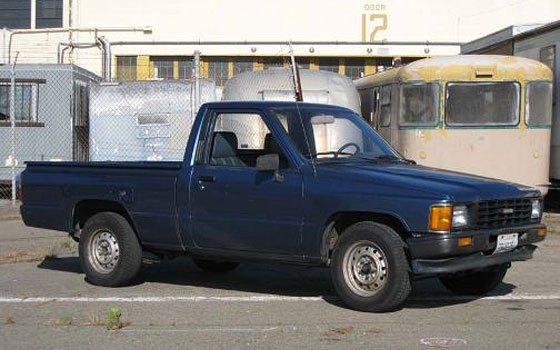
















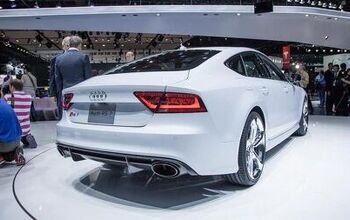
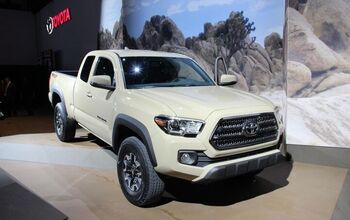

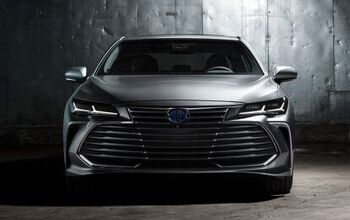



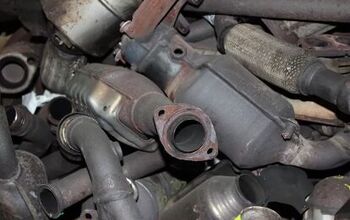






Comments
Join the conversation
Please sign this petition and help our family and thousands of families livelihoods that are dependent on the continuance of the operations of Toyota car manufacturing plant. http://www.thepetitionsite.com/5/save-california-jobs We ask that you also PLEASE send this to EVERYONE you know, every signature counts! For a quarter-century, the New United Motor Manufacturing Inc. vehicle plant, which employs 4,700 workers, was a joint venture between General Motors and Toyota. But the NUMMI venture now circles the fringes of a whirlpool. GM, while working through bankruptcy, abandoned NUMMI, and Toyota says GM's departure has forced it to explore all options, ranging from going it alone to shutting down the factory. The closure of NUMMI would not only affect the 4700 workers at the plant, but would have a ripple effect on as many as 35,000 jobs. The health of a number of local economies across the state would suffer loss of jobs, jobs that are indirectly tied to the plant through suppliers, vendors and small-parts manufacturers throughout the state. Please sign this petition and help our family and thousands of families livelihoods that are dependent on the continuance of the operations of Toyota car manufacturing plant. We ask that you also PLEASE send this to EVERYONE you know, every signature counts! For a quarter-century, the New United Motor Manufacturing Inc. vehicle plant, which employs 4,700 workers, was a joint venture between General Motors and Toyota. But the NUMMI venture now circles the fringes of a whirlpool. GM, while working through bankruptcy, abandoned NUMMI, and Toyota says GM's departure has forced it to explore all options, ranging from going it alone to shutting down the factory. The closure of NUMMI would not only affect the 4700 workers at the plant, but would have have a ripple effect on as many as 35,000 jobs. The health of a number of local economies across the state would suffer loss of jobs, jobs that are indirectly tied to the plant through suppliers, vendors and small-parts manufacturers throughout the state. Regarding the NUMMI/Toyota plant in Fremont Thousands of people in California want Toyota to continue operations at the Fremont auto plant. The Bay Area provides skilled and enthusiastic workers who want to keep their jobs and others who want to gain employment in the auto industry. California, the nations largest population offers an excellent environment for Toyota's plant because of its love of environmentally friendly cars. Toyota should produce cars in California because Californians are the largest buyers of cars in our nation. We are enclosing a petition reflecting thousands of signatures of people who desire Toyota to stay in Fremont Ca. We respectfully thank you for all the employment you have provided to all of our people over the past years. Please keep Toyota Manufacturing in Fremont Ca. Concerned Californians and Friends
Well, getitdone, I live in Michigan. You know, that funny shaped state in flyover country which is either laughed at or ignored by folks on the left and right coasts? We've lost "just a few" more jobs than one little plant in San Fran bay over the past 4 decades, in that little thing called the auto industry. In fact our state is in a full scale depression. It is not with pride that I say that our Democratic governeress is totally incompetent, but at this late date, Bingo the Evil Clown could run this state and it would be difficult to be in a worse situation. I'm sorry if NUMMI closes, but gosh, I don't recall anyone going out of their way trying to save literally hundreds of thousands of jobs in my home state over the past 40 years. Perhaps if the Union guys had been willing to actually take note that the auto workers really truly didn't "deserve" $78 an hour plus free viagara that they could black-market and make extra money on, free medical care, etc etc, then perhaps just perhaps the Big 3 and AMC could have woken up and engineered then built better cars in order to better compete. But this didn't happen. Of course, there is no guarantee that it would have happened had costs been contained. After all, greed is not simply a blue-collar phenomenon, to say the least. Look at NYC and the banksters, look at DC and the fraudsters in charge. How does 50% plus unemployment in Flint, Michigan (early 1980's) sound? How about a real world unemployment rate of over 22% right now in the entire state? ("Official" unemployment is 15.2% but this is yet another government lie from the Feds, in case you've been asleep for awhile). Be thankful you only have one car plant TO LOSE.